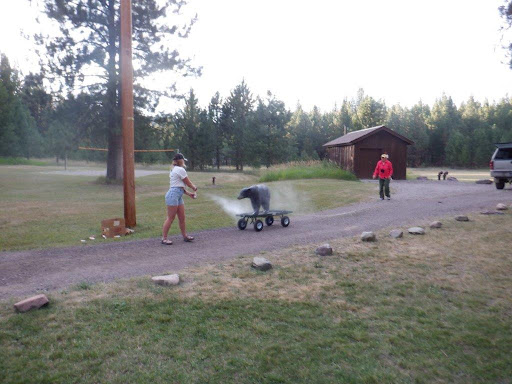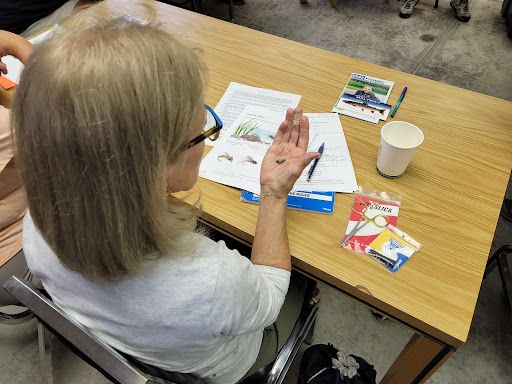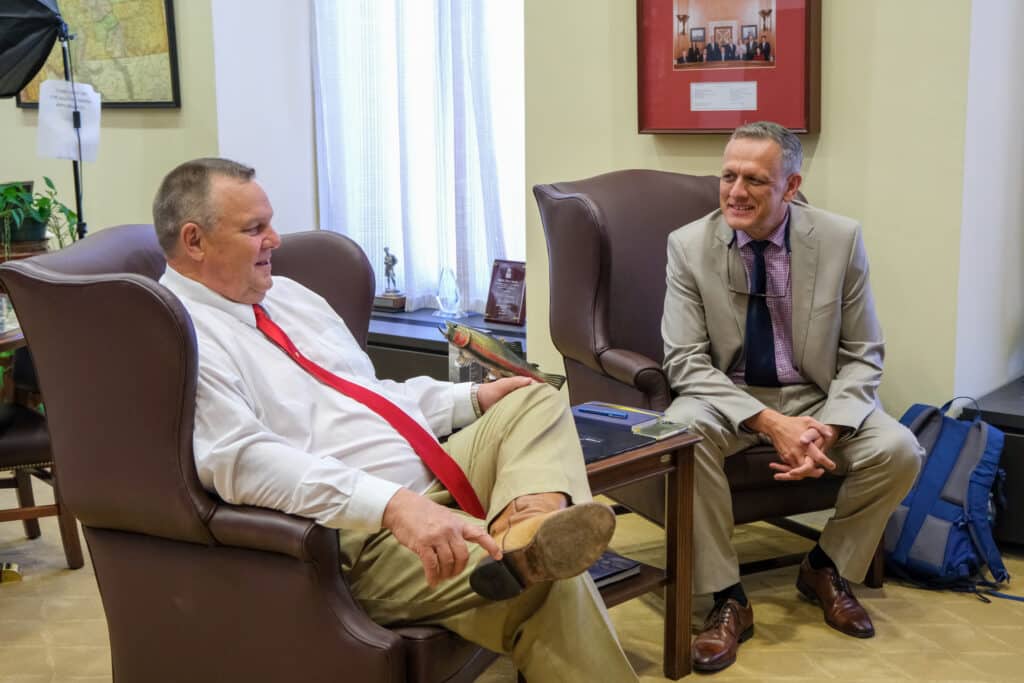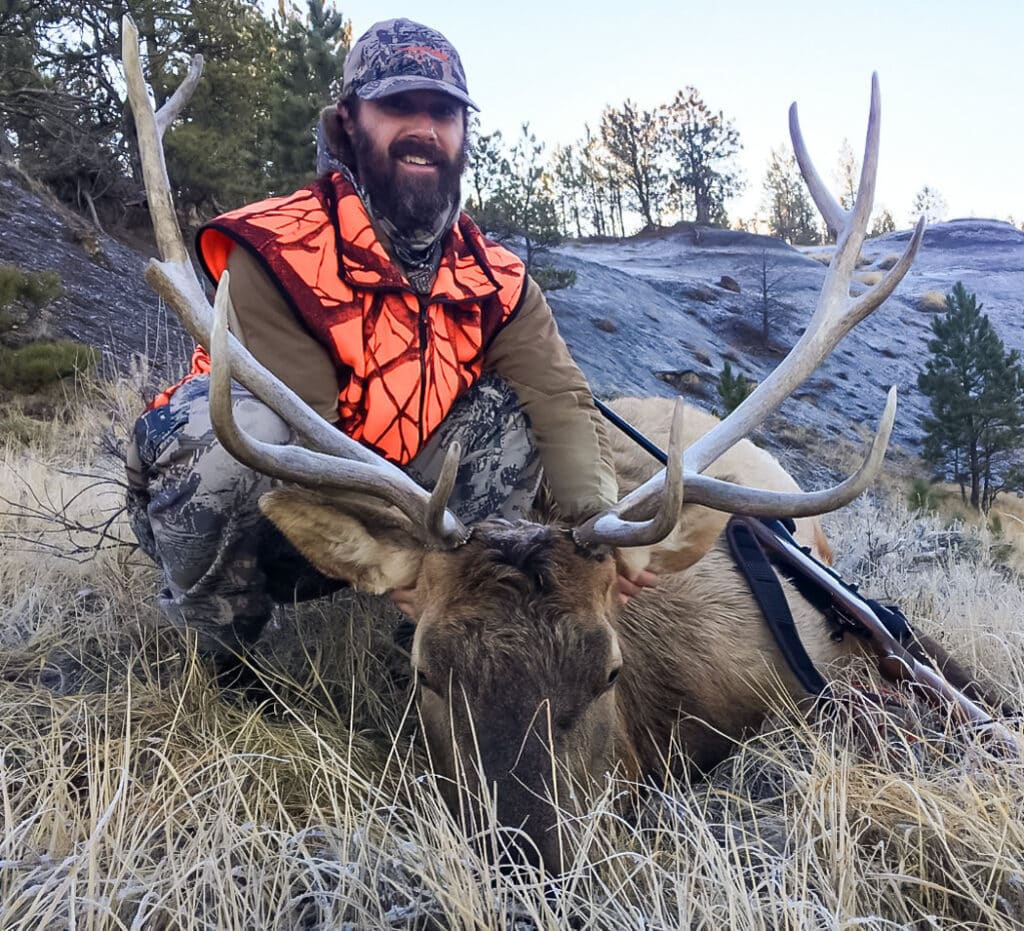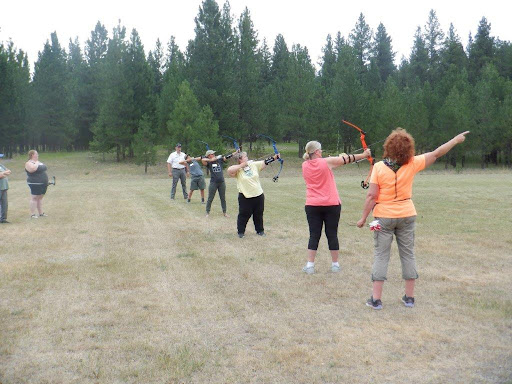
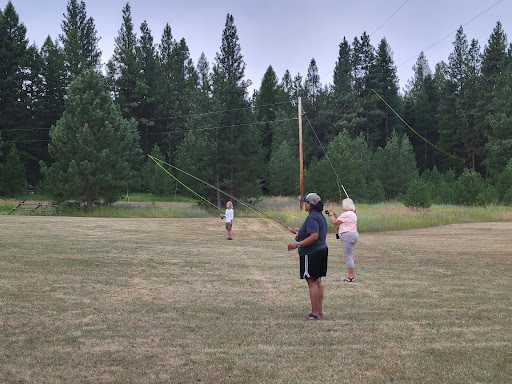
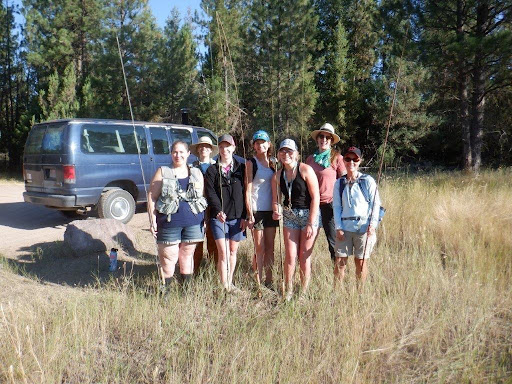
BOW has become a staple in Montana and women from across the state come together to experience a weekend of learning and growth in a safe and fun environment. Montana Fish Wildlife & Parks hosts BOW and the purpose is to introduce “women to different outdoor skills such as fishing, hunting, shooting, archery, orienteering, camp cooking, kayaking, and much more. BOW provides participants with information, encouragement, and hands-on instruction.”
BOW is a fantastic opportunity for women to build strong outdoor skills, a solid foundation of ethics and learning, and to meet and connect with other women who are interested in the same things. Stay tuned for workshops happening throughout the year and for the announcement for open registration for BOW 2023.
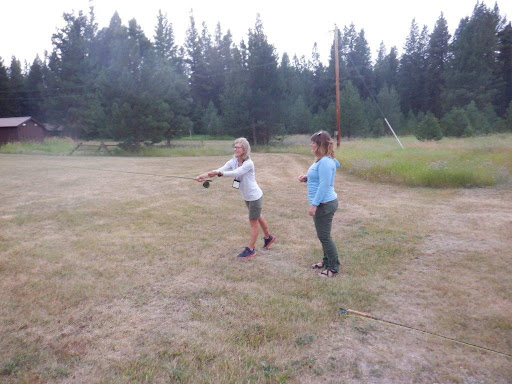
MWF’s Field Representative, Morgan Marks, attended for the Friday afternoon session to support women in the Beginning Fly Fishing class with fly casting and learning the ins and outs about fly fishing. Morgan walked away impressed with the organization of BOW, the level of expertise of instructors and their extensive knowledge of their subjects, and the overall enthusiasm of everyone involved. Hopefully, next year, MWF can show up for the entirety of the BOW weekend event!
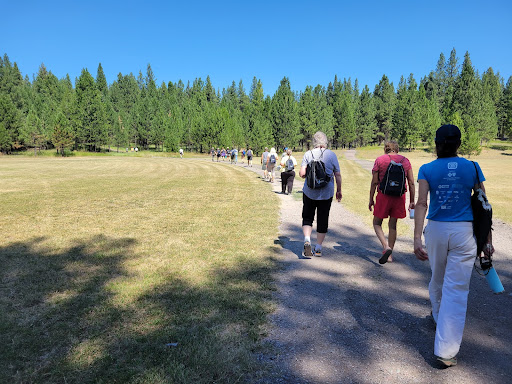
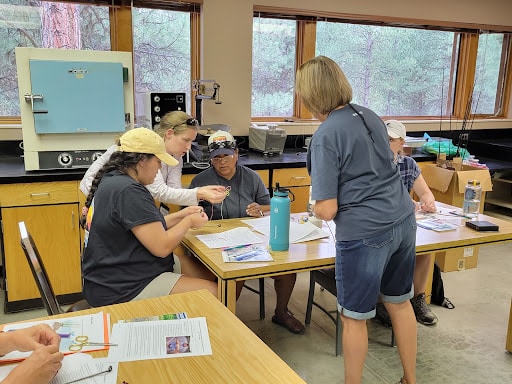
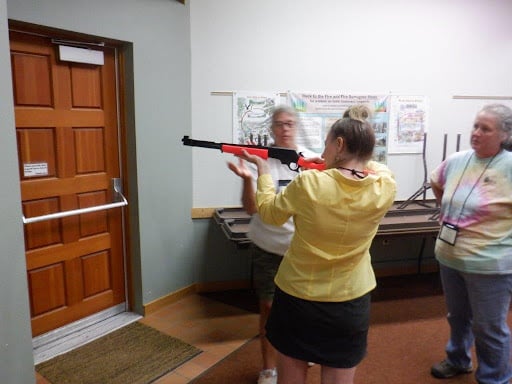
A note from Jim Vashro, an annual instructor at BOW, and President of MWF’s affiliate, Flathead Wildlife:
The statewide Becoming an Outdoors-Woman (BOW) workshop was held over the weekend at Lubrecht Experimental Forest near Clearwater Junction. BOW is designed to introduce women to basic and intermediate skills in a variety of outdoor activities in a safe and supportive atmosphere. Women are under-represented in outdoor sports, BOW empowers women and breaks down barriers. The workshop ran from noon, Friday, 8/12 to noon, Sunday, 8/14.
Women had to choose 4 activities from basic gun handling, rifle or shotgun shooting, archery, bird ID, plant ID, kayaking, stand up paddleboards, wilderness survival, backpacking, On the Road (dealing with car breakdowns, etc.), canning, map and compass, beginning and intermediate fly fishing and fly fishing on the water.
MWF’s Morgan Marks was able to attend Friday afternoon and helped with knot tying and fly casting in Beginning Fly Fishing. Thanks to Morgan and I hope you can stay longer next time.
The women also participated in Bear Aware training, building a shelter and a fire with flint and steel in Wilderness Survival, Chris Dover and Chipper gave a presentation on K-9 search and rescue and found one of the “lost” women, you’ll see one of five on-the-water fly fishing crews and a big smile for first fish on a fly. Fun activities included making paracord bracelets, fish tattoos and making earrings out of fish spinner parts. Lots of smiles, lots of plans to link up in their own communities for outdoor activities.
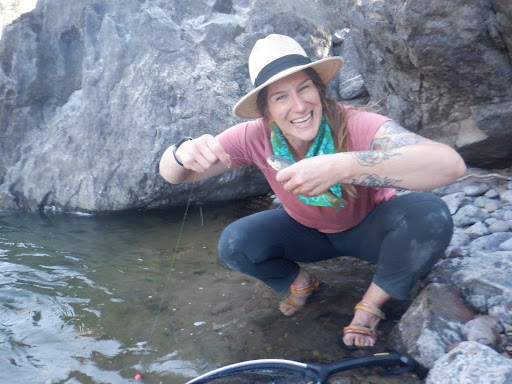
Pictures taken by Jim Vashro and Morgan Marks; shown are activities BOW participants are learning, such as casting a fly rod, archery, being bear aware and learning how to spray bear spray, fire starting, tying knots for fly fishing, catching a fish on a dry fly, and firearm handling and shooting.
